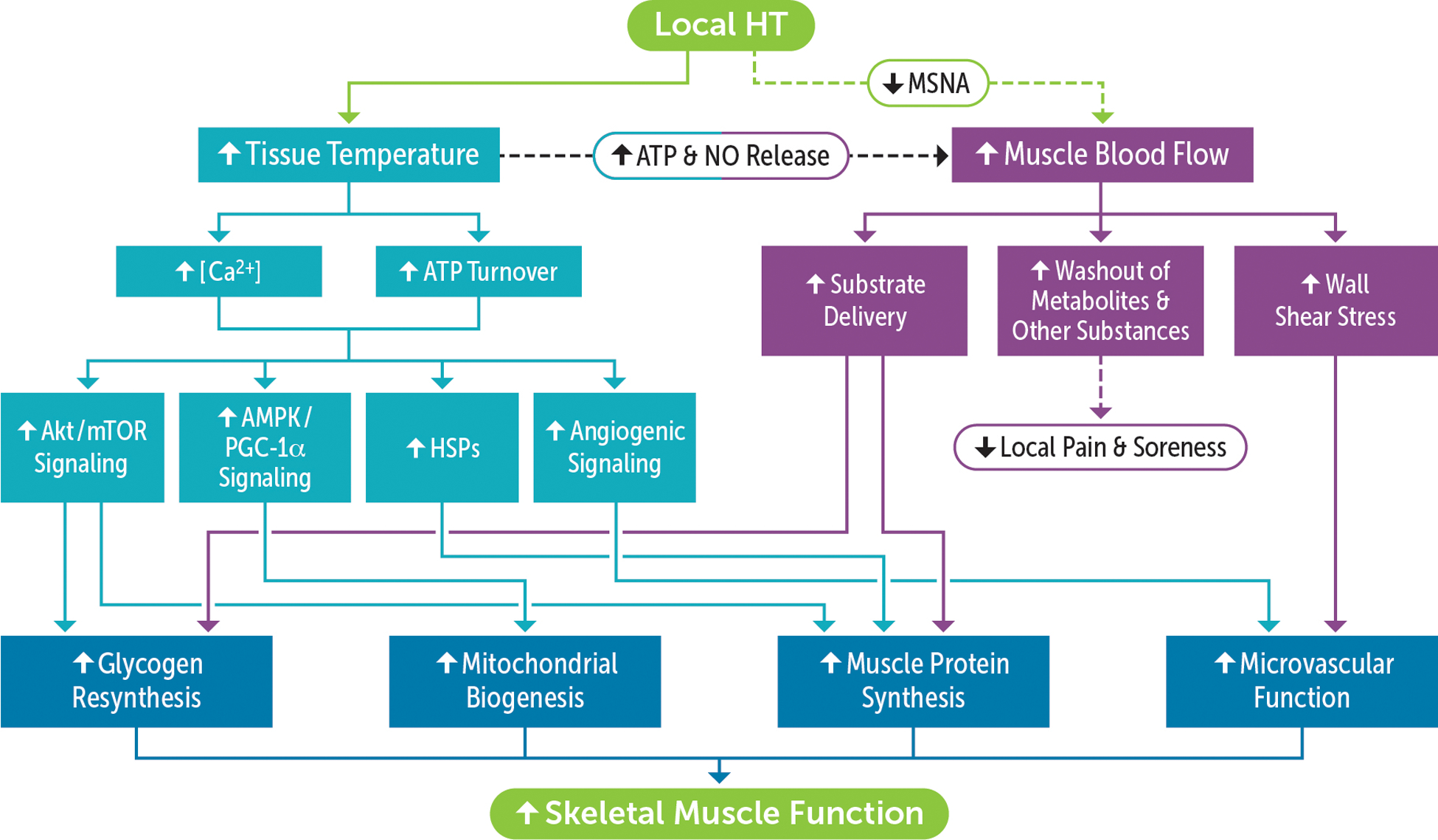FIGURE 2:

Conceptual framework for the mechanistic basis underlying the therapeutic effects of local heat therapy (HT) on post-exercise recovery. Elevated muscle temperature during exposure to HT perturbs cellular homeostasis and stimulates multiple signaling pathways involved, among others, in muscle hypertrophy, mitochondrial biogenesis and angiogenesis. In addition, activation of temperature-sensitive mechanisms evokes an increase in local muscle blood flow, thereby facilitating the delivery of substrates needed for muscle refueling and repair and the removal of substances that sensitize muscle nociceptors. Repeated increases in vascular shear rate during HT sessions may also enhance vasomotor function and increase the expression of angiogenic factors. Combined, local hyperthermia and hyperemia may reduce muscle soreness and induce a cluster of responses that favor the recovery of contractile function, including accelerated glycogen resynthesis and reversal of the detrimental impact of strenuous exercise on the vasculature as well as the mitochondria.
